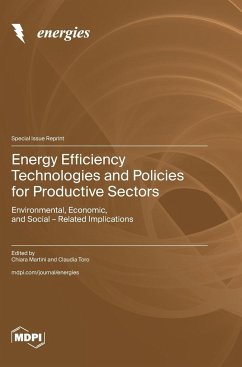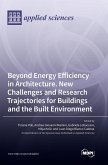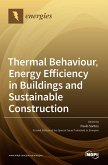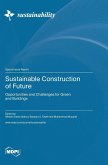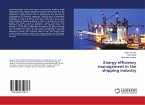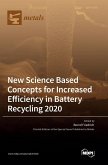This Special Issue focused on a combination of technological and policy-related analyses of energy efficiency. Indeed, an interdisciplinary approach is adopted, not only by combining economic and technical information, but also by including an evaluation of environmental and social-related implications. According to energy efficiency gap, energy efficiency measures may not be adopted due to different barriers; thus, public policies are needed to sustain their implementation. The long-term energy targets foster innovation and investment opportunities, while simultaneously creating markets for clean technologies and strengthening company competitiveness. The quantitative analysis of the main trends in the development and application of energy efficiency technologies can usefully complement policy planning and monitoring. The articles included in this Special Issue address the topic of energy efficiency in productive sectors from different perspectives, namely overall policy analysis, sectoral case studies and technology development. In particular, the methodological policy-related articles focus on assessing energy and environmental impact of development policies in Kenya, and descriptive, devoted to energy and climate crisis in Europe and individual well-being in Poland. Another group of articles focuses on energy audits, examined at sectoral level, related to energy efficiency interventions, and looking at energy management maturity of companies. Finally, four articles examine different technologies in a wide range of productive sectors, from construction industry to electricity generation.
Hinweis: Dieser Artikel kann nur an eine deutsche Lieferadresse ausgeliefert werden.
Hinweis: Dieser Artikel kann nur an eine deutsche Lieferadresse ausgeliefert werden.

